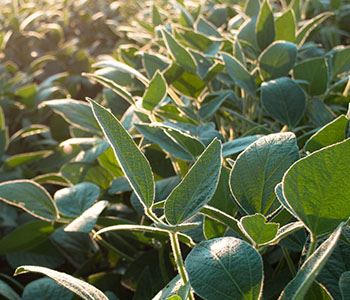Carbon Credits - an option for your farm
Mar 17, 2022

Brandon Hansen
Sales Agronomist, Roland, IA
As concerns escalate over the long-term impacts of climate change, farmers are finding themselves at the center of a new opportunity: carbon sequestration. This is the process of taking carbon from the air and storing it in the soil. This carbon can be measured and monitored, becoming an asset that’s treated as a secondary commodity crop.
The sale of carbon credits gives farmers the opportunity to receive financial benefits for transitioning to more environmentally friendly practices (although carbon prices may not currently be high enough to cover the cost of switching practices). In other words, farmers can get paid for environmental efficiency and soil quality.
There are two commonly asked questions about carbon credits:
-
How do you measure soil carbon?
-
How much are carbon credits worth?
Factors like vegetation, soil characteristics, drainage and climate affect the length and amount of carbon storage. Soil carbon can be measured in several ways, including soil sampling and modeling (or a combination of both). Different entities use different methods for their accredited programs, but these methods must be approved by a registry like The Gold Standard and an independent, third-party verifier.
Information about carbon markets can be challenging to navigate, as each company typically has a different structure for payments, verification and data ownership. However, just like used cars, the value of a carbon credit depends on who is buying and selling it. A carbon credit can be sold for as little as $3 or $4 per ton, or as much as $47 per ton. The majority of credits fall in the range of $10 to $15 per ton.
Companies will spend millions of dollars on carbon credit programs to show consumers they are concerned with the environment. For an example, look at the recent Microsoft offer of $20 per ton of offset carbon. That is a very generous offer in the current market.
Key Cooperative is committed to playing a key role in helping our member-owners participate in carbon and other ecosystem markets, which right now feels like a surfboard on the edge of a tsunami. Precision conservation tools—such as the Truterra™ Insights Engine—will be crucial as we guide farmers in adopting field-specific carbon sequestration practices, while also addressing whole-farm profitability. In the near future, there will be more demand for carbon credit opportunities than supply, so now is the time to get your operation ready. Planning today will help you make a decision when the right carbon program comes along.
If you have any questions about the Truterra Insights Engine or carbon credits, please contact your local Key Cooperative Agronomist.